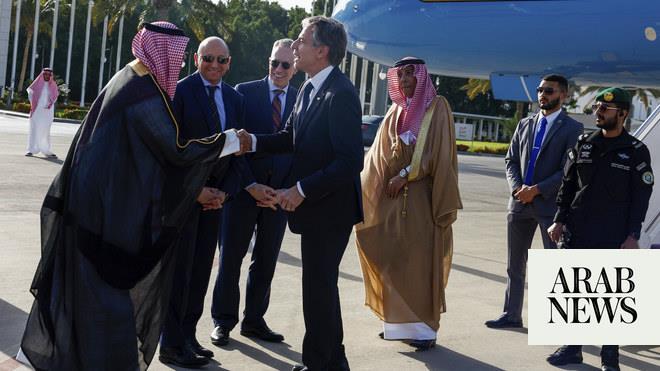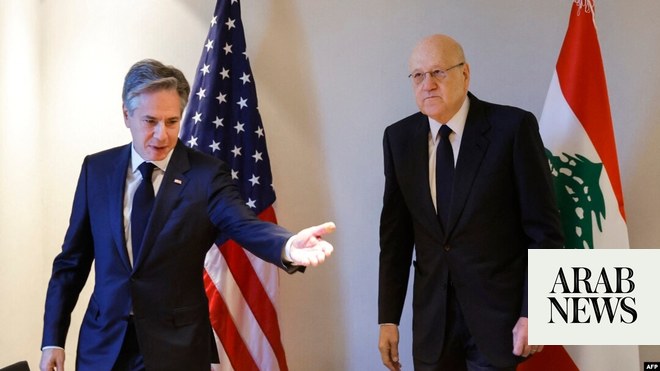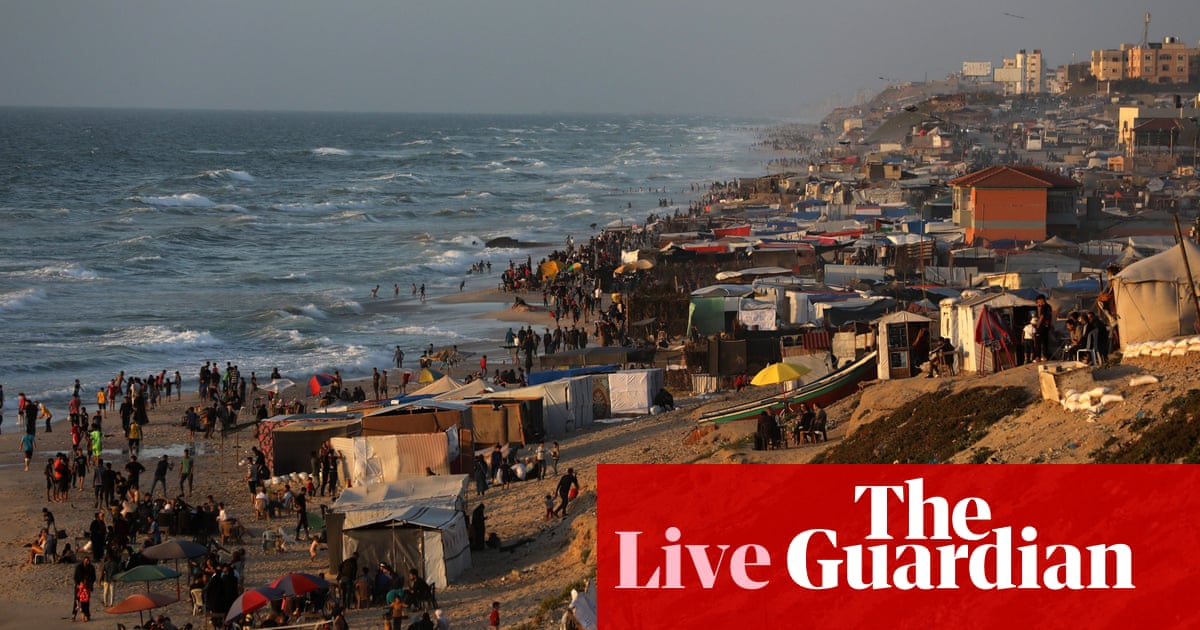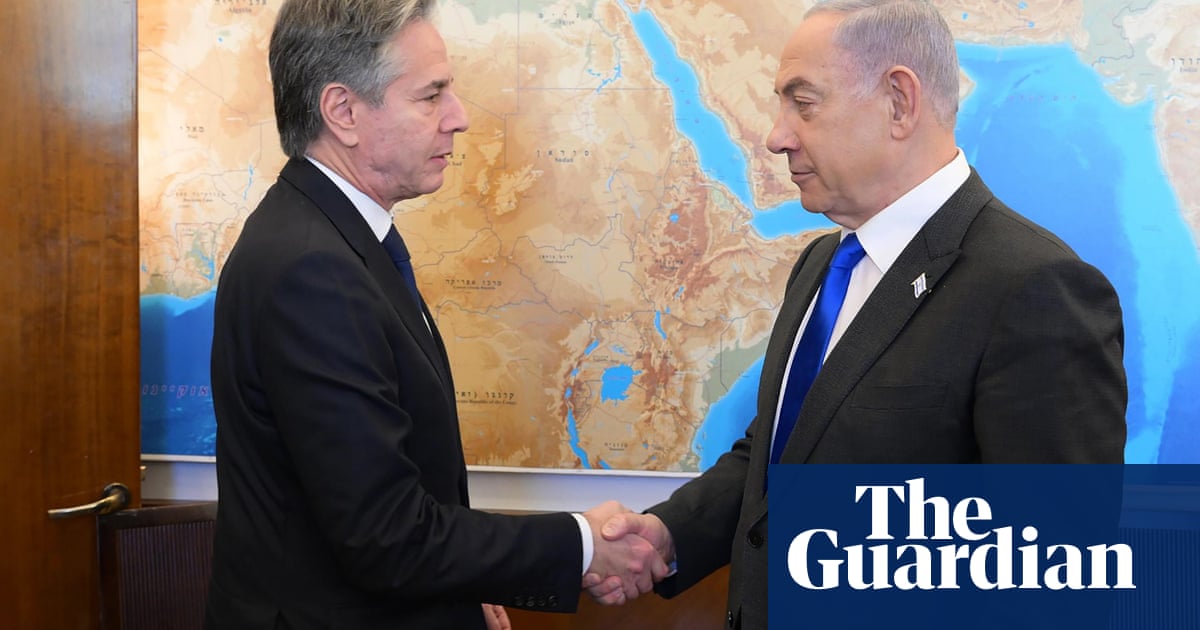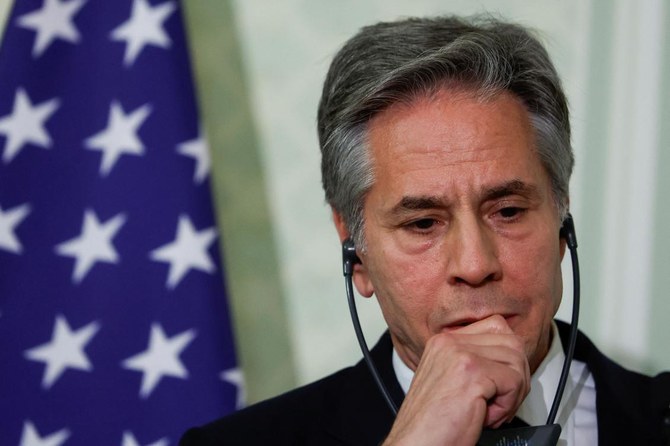
The US secretary of state has arrived in Israel for 11th-hour talks aimed at shoring up a deal for a lasting ceasefire in the war in Gaza, amid signals from Israeli and Hamas officials that a breakthrough may not be as close as international mediators had suggested.
Antony Blinken flew into Tel Aviv on Sunday as part of Washington’s renewed efforts to broker a ceasefire in the 10-month-old conflict, negotiations seen as even more urgent after last month’s back-to-back assassinations of a top Hezbollah commander and the Hamas political chief, Ismail Haniyeh.
It is hoped a ceasefire would lower the temperature in the Middle East and dissuade Iran and Hezbollah from retaliatory action that could cause the war in Gaza to slide quickly into a region-wide conflict.
The US’s top diplomat will seek to “conclude the agreement for a ceasefire and release of hostages and detainees” during his 10th visit to the region since the war broke out following Hamas’s 7 October attack, the state department said. Blinken is expected to meet senior leaders including Israel’s prime minister, Benjamin Netanyahu, on Monday before travelling on to Egypt.
International mediators the US, Qatar and Egypt struck an optimistic tone after two days of talks in the Qatari capital, Doha, last week, announcing that a “bridging proposal” had been agreed. Negotiations to close remaining gaps are expected to resume in Cairo on Wednesday or Thursday.
The US is keen to be able to announce that a deal has been agreed during the Cairo summit, as focus in Washington begins to turn to November’s US elections. However, Hamas, which is not directly participating in this round of negotiations, has said the idea that a deal is getting closer is “an illusion”.
On Sunday evening Hamas said the new proposal was too aligned with the Israeli prime minister’s position. “We hold Netanyahu fully responsible for thwarting the mediators’ efforts, delaying the agreement, and for the lives of his prisoners who are exposed to the same danger as our people due to his ongoing aggression and systematic targeting of all aspects of life in the Gaza Strip,” it said.
Israeli officials have also expressed caution. “After the United States accepted most of [Israel’s] demands, we have to be flexible on the clarifications that were added,” an unnamed source with knowledge of the talks told Israel’s Channel 12. “Otherwise, there isn’t any chance of bringing Hamas to the table … from its perspective, this is an American-Israeli proposal.”
Netanyahu said at the start of his weekly cabinet meeting on Sunday: “I would like to emphasise we are conducting negotiations and not a scenario in which we just give and give. There are things we can be flexible on and there are things that we cannot be flexible on, which we will insist on.
“Therefore, alongside the major efforts we are making to return our hostages, we stand on the principles that we have determined, which are vital for the security of Israel.”
Hamas and Israel agreed in principle last month to implement a three-phase framework publicly proposed by Biden in May and endorsed by the UN security council. The plan would involve an initial six-week ceasefire, during which a limited number of Israeli hostages would be freed in exchange for Palestinians held in Israeli jails, and the amount of humanitarian aid entering the strip would increase.
Unlike the week-long truce that collapsed at the end of November, this ceasefire would be indefinitely extendable while negotiators thrash out details of the next stage, so an impasse would not necessarily trigger a return to hostilities.
Hamas has said the latest version of the proposal under discussion diverges significantly from the May iteration after new Israeli demands were added, including a permanent Israeli military presence along the Gaza-Egypt border and the Netzarim corridor, the new Israeli-controlled barrier bisecting the strip.
Israel says those measures are necessary to stop Hamas and other militias rearming and regrouping, while Hamas has reiterated its core demand that all Israeli troops must completely withdraw from Gaza as a prelude to ending the war. To date, Israel has not been willing to agree to go beyond a temporary pause in the fighting.
Critics at home and abroad have accused Netanyahu of stalling on a deal for political gain, but Israeli media reported that the prime minister was scheduled to meet his negotiating team on Sunday to review whether an Israeli presence in the two areas was non-negotiable.
According to Egyptian officials who spoke to the Associated Press, Egyptian and Israeli military officials are expected to meet next week to discuss the possibility of a withdrawal mechanism from Rafah, on the Gaza-Egypt border.
The Rafah crossing is the strip’s main lifeline to the rest of the world; humanitarian groups have complained of backlogs and distribution issues since Israel seized control of the area in May. Last week the Palestinian health authority confirmed the first case of polio in the strip for 25 years.
Even amid speculation over a ceasefire, the bloodshed in Gaza continues: Israeli strikes across the besieged territory killed 28 people overnight and into Sunday, according to first responders, including a woman and her six children in the central town of Deir al-Balah.
Mohammed Awad Khatab, the children’s grandfather, said his daughter was a teacher and her youngest child was 18 months old. The others were 10-year-old quintuplets, al-Aqsa hospital said.
“The six children have become body parts. They were placed in a single bag,” he told reporters at the hospital. “What did they do? Did they kill any of the Jews? … Will this provide security to Israel?”
On Sunday evening, one person was killed after a bomb exploded in Tel Aviv, according to Israeli police. “It has been confirmed as a bomb explosion,” a police spokesperson said.
“As a result of the explosion, one person – whose identity is still unknown – was killed, and another person was moderately injured. All investigative avenues are being explored.”
Tensions between Israel and Hezbollah have also flared after an Israeli strike on southern Lebanon on Saturday that killed 10 people, one of the deadliest single attacks on Lebanon since Hezbollah and Israel started trading crossborder fire on 8 October.
Hezbollah and Iran’s other allies in Syria, Iraq and Yemen have said they will stop attacking Israel when the war in Gaza is brought to an end. The long-running shadow war between Israel and Iran burst into the open for the first time in April when Tehran launched more than 300 ballistic missiles and drones at Israel in revenge for the killing of several Iranian Revolutionary Guards commanders in Damascus.
That attack was heavily telegraphed in advance, allowing Israel’s air defence systems and the air forces of several of its allies to intercept most of the projectiles.
About 1,200 people were killed in the Hamas invasion on 7 October, and another 250 taken hostage, according to Israeli tallies. More than 40,000 people have been killed in Israel’s retaliatory war in Gaza, according to the health ministry in the Hamas-run strip, and almost all of the 2.3 million population have been displaced from their homes amid a dire humanitarian crisis.




